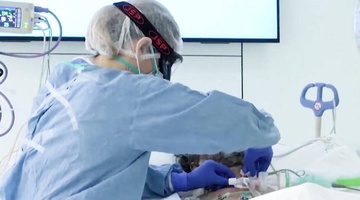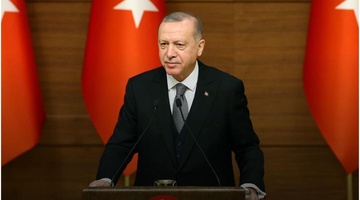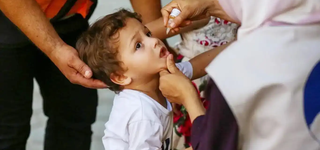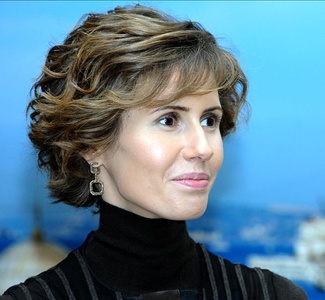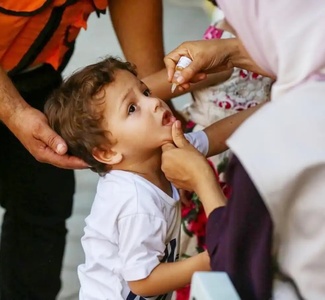Young population constitutes 15.6% of Turkey's population
Young population constituted 15.6% of Turkey's population, Turkish Statistical Institute announced in a statement on Friday.

 Google News'te Doğruhaber'e abone olun.
Google News'te Doğruhaber'e abone olun. According to the results of Address Based Population Registration System (ABPRS), while the total population of Turkey was 83 million 154 thousand and 997 by the end of 2019, the young population at the age group of 15-24 was 12 million 955 thousand and 672. Young population constituted 15.6% of total population. While males constituted 51.3% of young population, females constituted 48.7% of it.
According to the population projections, the proportion of young population was expected to decrease to 14.8% in 2023, 14.0% in 2030, 13.4% in 2040, 11.8% in 2060 and 11.1% in 2080.
The average proportion of young population for the European Union member countries was 10.7
It was seen that the proportion of young population in the total population of Turkey was higher than that the proportions of young population of 28 European Union member countries. When the proportion of young population of 28 European Union member countries were analyzed, the country having the highest proportion was Southern Cyprus with 12.8% and the country having the lowest proportion was Bulgaria with 8.9% in 2019.
The province with the highest proportion of young population was Hakkari with 23.9%
According to the results of ABPRS, Hakkari had the highest proportion of young population with 23.9% in 2019. This province was followed by Şırnak with 22.7% and Bayburt with 22.6%. The provinces with the lowest proportion of young population were Muğla with 12.6%, Balıkesir with 12.9%, İzmir with 13.2%, respectively.
Proportion of young people who moved out of his/her province of residence to study at university was 4.4%
According to the results of the ABPRS, in 2019, 411 thousand and 818 young people in the 18-24 age group moved out of his/her province of residence to study at university. The proportion of these young people in the young population of the 18-24 age group was 4.4%. While this proportion for young males was 4.2%, it was 4.7% for young females.
When the proportion of young people who moved out of his/her province of residence to study at university analyzed by provinces, it was seen that the province with the highest proportion was Burdur with 17.7%. This province followed by Bayburt with 17.5% and Isparta with 17.0%, respectively. The provinces with the lowest proportion of young people who moved out of his/her province of residence to study at university were Şırnak with 0.4%, Şanlıurfa with 0.6% and Diyarbakır with 0.8%, respectively.
Proportion of married young females was 4 times higher than those of males
When young population was examined by legal marital status, it was seen that there was a significant difference between sexes. While 95.8% of young male population was never married, 4.1% of them was formally married, and 0.1% of them was divorced, it was seen that 82.7% of young female population was never married, 16.8% of them was formally married and 0.5% of them was divorced in 2019.
It was seen that 18.7% of young females had higher education level than their spouses
According to the results of the ABPRS, when the educational difference between spouses was examined in legal marriages, it was seen that 33.6% of young females were married with the males that had higher educational level than themselves, while the proportion of young females who had higher educational level than their spouses was 18.7% in 2018. The proportion of young couples with the same educational level was 45.8%.
Net enrollment rate in higher education for females was 46.4%
In Turkey, while net enrollment rate in higher education in 2017/'18 educational year was 45.6%, this rate decreased to 44.1% in 2018/'19 educational year. When net enrollment rate in higher education was analyzed by sex, while this rate for males decreased from 44.0% to 41.9%, for females it decreased from 47.4% to 46.4%.
Unemployment rate was 25.4% for young people
According to the results of household labor force survey, while unemployment rate for young people was 20.3% in 2018, it increased to 25.4% in 2019. While unemployment rate for young males was 17.6% in 2018, it was 22.5% in 2019. While this rate for young females was 25.3% in 2018, it was 30.6% in 2019.
The proportion of young people who took part in neither education nor employment in 2019 was 26.0%. While this proportion was 18.3% for young males, it was 34.0% for young females.
Employment rate for young people was 33.1% in 2019. While this proportion was 43.4% for young males, it was 22.6% for young females.
54.1% of employed young people took part in service sector
According to household labour force survey, while the employment rate of young people was 35.0% in 2018, it was 33.1% in 2019. When employment rate was analysed by sex, while the employment rate of young males was 46.4% in 2018, it was 43.4% in 2019. While the employment rate of young females was 23.4 in 2018, it was 22.6 in 2019.
While young employees was analysed by sectors, it was seen that 17.7% of young people were employed in agriculture sector, 28.2% in industry sector and 54.1% of them were employed in service sector in 2019. It was also seen that while 15.7% of young males took part in agriculture sector, 33.4% in industry sector and 50.9% of them were employed in service sector, 21.7% of females took part in agriculture sector, 17.8% in industry sector and 60.5% of them were employed in service sector.
88.0% of young people declared that they were satisfied from their own health
According to the results of life satisfaction survey, while the proportion of people who declared they were satisfied with their own health among the people aged 18 and over was 70.3% in 2018, it decreased to 68.3% in 2019. While the proportion of satisfaction from health of young individuals was 85.5% in 2018, it increased to 88.0% in 2019. This proportion was 89.6% for young males and 86.4% for young females in 2019.
Proportion of young people using Internet was 92.4%
According to the results of information and communication technology usage survey in households and by individuals, the proportion of Internet usage among young people at the age group of 16-24 was 92.4% in 2019 while it was 93.0% in 2018. While the proportion of Internet usage of young males was 96.9% in 2018, it was 96.1% in 2019. While this proportion for young females was 89.0% in 2018, it was 88.6% in 2019.
56.7% of young people declared that they were happy
According to the results of life satisfaction survey, while the proportion of young people at the age group of 18-24 who declared that they were happy was 55.4% in 2018, it was 56.7% in 2019. This proportion was 50.0% for young males while it was 63.4% for young females in 2019.
Health was the first source of happiness for young people
According to the results of life satisfaction survey, health was the first value as a source of happiness for young people with 52.3% in 2019. This was followed by success with 24.2% and love with 15.1%. When the source of happiness was analyzed by sex, health was the first value as a source of happiness for young males with 50.1% and it was followed by success with 28.3% and love with 11.4%. For young females, health was the first value as a source of happiness with 54.5%, and it was followed by success with 19.9% ??and love with 18.8%.
73.0% of young people declared that they were satisfied from their job
According to the results of life satisfaction survey, 73.0% of young people were satisfied from their job, while 49.8% of them were satisfied from their income received from their job in 2019. For young males, the proportion of satisfaction from job was 76.2% and the satisfaction from the income received from their job was 51.2%, while for young females these proportions were 66.7% and 46.8%, respectively.
62.0% of young people were satisfied with the education they received
According to the results of life satisfaction survey, 62.0% of young people declared that they were satisfied from the education they received up to 2019. 62.2% of young males were satisfied from the education they received while 61.9% of young females were satisfied from the education they received. (ILKHA)




























